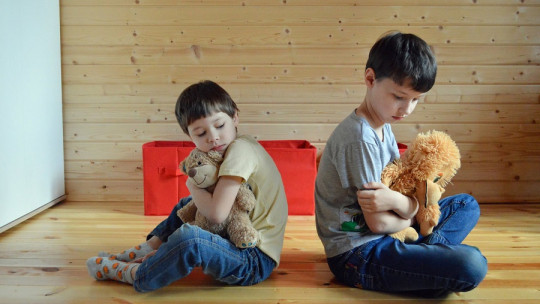
Self-esteem is a term that has taken center stage in recent times; it is often heard constantly that such a person has “low” or “high” self-esteem and from this it is defined that all problems originate there.
Indeed, Self-esteem is a fundamental part of our development and how we position ourselves in the different areas of our lives
What is self-esteem?
Self-esteem is the assessment we make of ourselves, its construction is carried out from the perception of our qualities. People are not born with a defined concept of self, but rather it is formed and developed gradually throughout life to the extent that they relate to the environment, through the internalization of psychological, physical and social experiences that they have. people go through in their development.
The concept we have of ourselves influences how we feel, whether we value our abilities, our physical appearance, our behavior, how we relate to others as well as the way we integrate past experiences and how we feel valued by our environment.
The image we have of ourselves is a key factor in understanding how we relate, how we interpret what happens to us and how we face the challenges of the different stages of our lives.
How is our self-esteem formed?
Self-esteem is built from the bond with others we can understand it as the degree of appreciation and valuation that we have towards ourselves, and that is the result of the agreement or disagreement between what I am, what I believe I am and what I would like to be.
We can think about its constitution from two lines, one is the contact with the outside world: the messages we receive since childhood from our parents, family, friends, teachers. And on the other hand, the sum of the experiences lived in childhood influence how we perceive our reality in adult life, how we face our successes, mistakes, etc.
In the first moments of our lives, we receive a series of words and messages that make us feel more or less worthy of receiving affection and being accepted by others. At this stage it is of utmost importance to have at least one caregiver who provides us with emotional attachment, security and trust The first experiences of satisfaction of our basic needs for food, cleanliness, closeness and physical affection by the adult who cares for us deeply mark the feeling that the world is a safe place, or on the contrary it is not.
As we grow, we begin to build our autonomy, we explore our closest environment, and depending on the facilities or inhibitions that the people around us offer us, we will exercise the stimulus to learn new things and test our own abilities.
At this point, a secure attachment will allow you to develop balanced self-esteem, feeling loved, accepted and valued On the contrary, if the child did not form a secure and satisfactory relationship, when he has been told that he has few qualities to be loved and valued, a belief system will be formed that will distort the way in which he processes the experience in adult life. .

What to do with what they tell us we are?
Up to this point, we have developed how self-esteem is built, and we have seen that our caregivers and the first years of our lives play a fundamental role. But we must ask ourselves, is that all? Will what they have told us and made us believe determine us without the possibility of changing it? The answer is not simple or unique, but we can risk saying that no, self-esteem is not an unalterable and rigid construction. Self-esteem changes and evolves throughout our lives.
Let’s expand this idea, what happens to us as children and the influence of the words of others on the constitution of our self-esteem can condition our adult life, the beliefs we have about ourselves and how we relate to the world, but in no way determines us. Since an important element begins to influence here, our self-construction, there is a point of freedom where we have to decide what to do with what they told us we are.
This is a fundamental point, we cannot change the story of our life, but we can change the way we interpret it Taking charge of what happens to us in life and taking control of what happens in it will allow us to position ourselves in a different way, it will give us the possibility of beginning to value ourselves, to appreciate who we are and what we have achieved.
The self-concept one has of oneself touches on an aspect of identity and well-being that makes it possible to carry out healthy relationships with others, as well as with oneself. In all areas in which a person develops, whether in study, work, personal relationships, they will be affected by the value that each person gives themselves, what they say about themselves. In other words, if one believes that he is stupid, useless or that others do not pay attention to him, that will mark his own judgment about how he will feel and the place he will occupy for the rest.
How to improve self-esteem?
In general terms we can mention certain elements that will help us have a better relationship with ourselves:
To conclude, self-esteem is not something that we should raise or lower, it is a system that allows us to relate to ourselves and our surroundings in a tolerant and kind way, being realistic with our possibilities and those of others.









